Which carbocation is the most stabilized ?
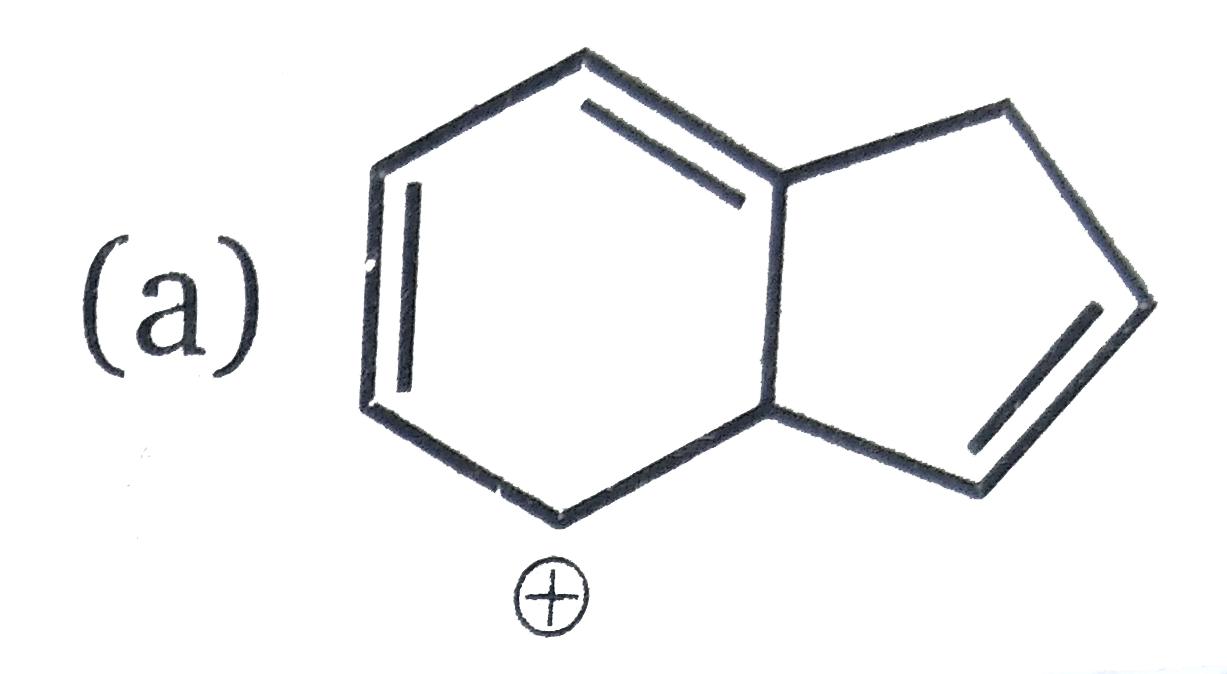
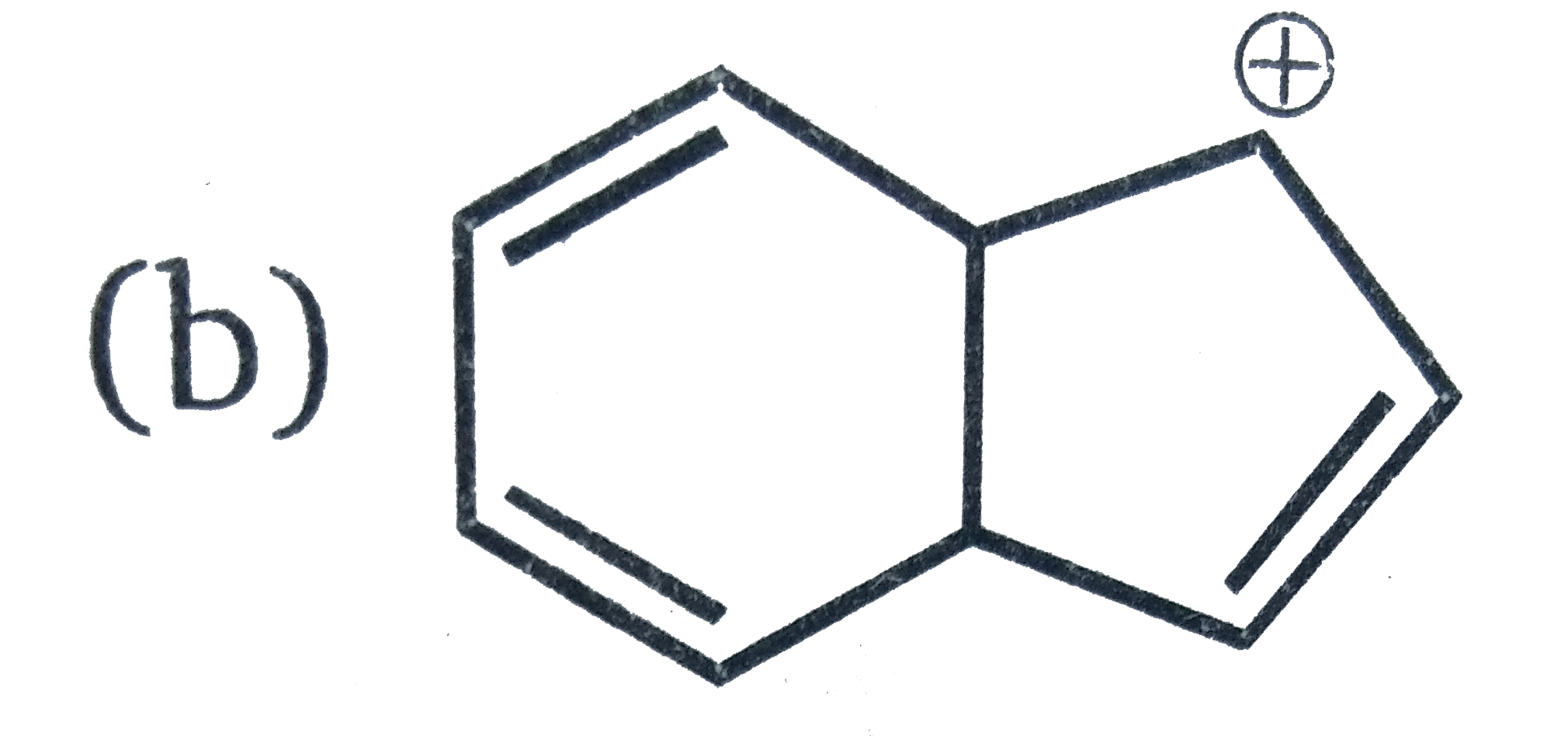
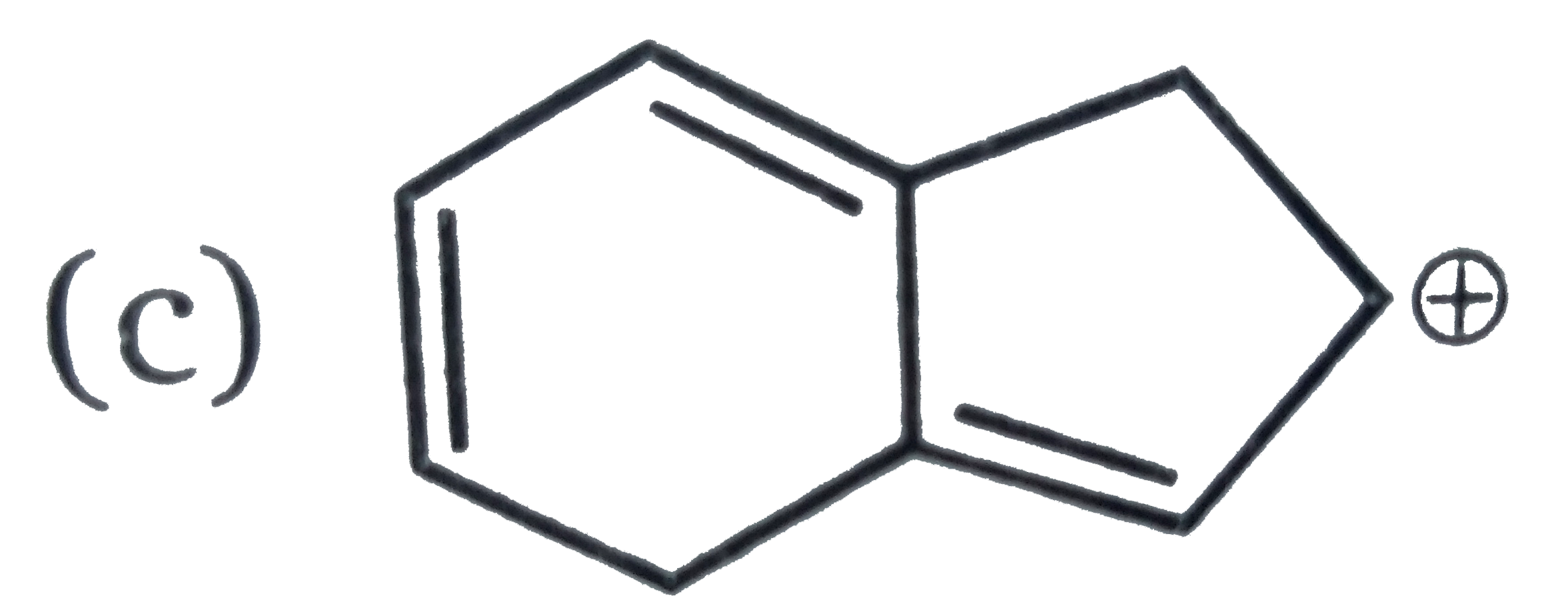
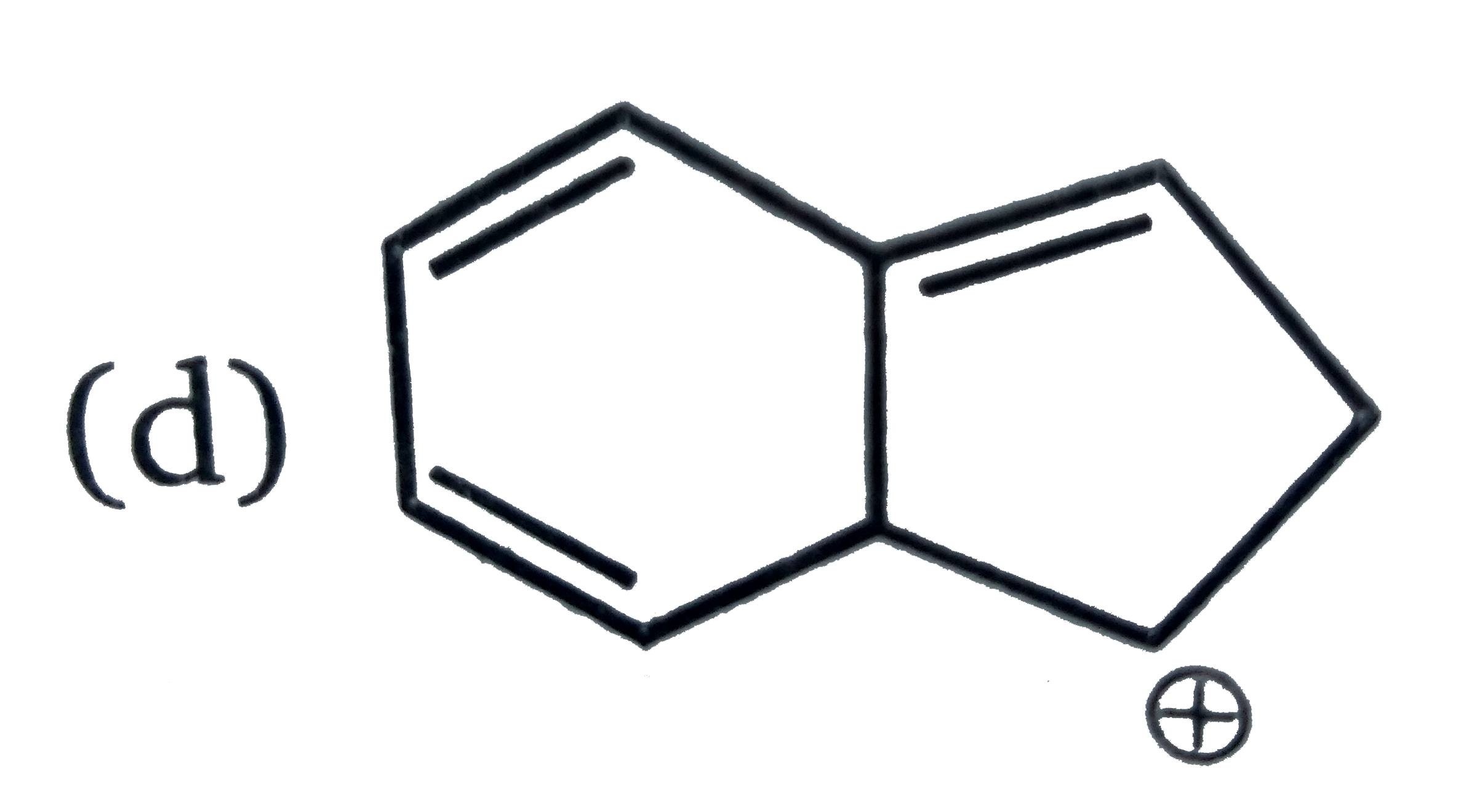
The correct Answer is:C
To determine which carbocation is the most stabilized, we need to analyze the resonance structures and the degree of conjugation in each carbocation. Here’s a step-by-step solution:
Step 1: Identify the Carbocations
Assume we have four carbocations (let's label them A, B, C, and D) to analyze. Each carbocation has a positive charge and varying degrees of resonance and conjugation.
Step 2: Analyze Resonance in Each Carbocation
1. Carbocation A:
- The positive charge is adjacent to two double bonds.
- It can participate in resonance with both double bonds, leading to multiple resonance structures.
2. Carbocation B:
- The positive charge is adjacent to one double bond.
- It can only participate in resonance with that single double bond.
3. Carbocation C:
- The positive charge is in a position where it can participate in resonance with three double bonds.
- This allows for the formation of multiple resonance structures, enhancing stability.
4. Carbocation D:
- The positive charge has no adjacent double bonds and is surrounded by sigma bonds only.
- Its stability relies solely on hyperconjugation from adjacent alkyl groups, which is less effective than resonance.
Step 3: Count the Resonance Structures
- Carbocation A: 3 resonance structures (due to 2 double bonds)
- Carbocation B: 2 resonance structures (due to 1 double bond)
- Carbocation C: 4 resonance structures (due to 3 double bonds)
- Carbocation D: 1 resonance structure (no double bonds, only hyperconjugation)
Step 4: Determine Stability Based on Resonance
- The more resonance structures a carbocation can form, the more stable it is due to the delocalization of the positive charge.
- Carbocation C, with the ability to resonate with three double bonds, will be the most stable.
- Carbocation A is next, followed by Carbocation B.
- Carbocation D is the least stable due to lack of resonance.
Conclusion
The most stabilized carbocation is Carbocation C because it has the highest number of resonance structures (4), allowing for greater delocalization of the positive charge.
---
Assume we have four carbocations (let's label them A, B, C, and D) to analyze. Each carbocation has a positive charge and varying degrees of resonance and conjugation.
1. Carbocation A:
- The positive charge is adjacent to two double bonds.
- It can participate in resonance with both double bonds, leading to multiple resonance structures.
- The positive charge is adjacent to one double bond.
- It can only participate in resonance with that single double bond.
- The positive charge is in a position where it can participate in resonance with three double bonds.
- This allows for the formation of multiple resonance structures, enhancing stability.
- The positive charge has no adjacent double bonds and is surrounded by sigma bonds only.
- Its stability relies solely on hyperconjugation from adjacent alkyl groups, which is less effective than resonance.
- Carbocation A: 3 resonance structures (due to 2 double bonds)
- Carbocation B: 2 resonance structures (due to 1 double bond)
- Carbocation C: 4 resonance structures (due to 3 double bonds)
- Carbocation D: 1 resonance structure (no double bonds, only hyperconjugation)
- The more resonance structures a carbocation can form, the more stable it is due to the delocalization of the positive charge.
- Carbocation C, with the ability to resonate with three double bonds, will be the most stable.
- Carbocation A is next, followed by Carbocation B.
- Carbocation D is the least stable due to lack of resonance.
The most stabilized carbocation is Carbocation C because it has the highest number of resonance structures (4), allowing for greater delocalization of the positive charge.
Topper's Solved these Questions
- GENERAL ORGANIC CHEMISTRYBOOK - MS CHOUHANCHAPTER - GENERAL ORGANIC CHEMISTRYEXERCISE - LEVEL- 1
1 Videos
- FAMILIES OF CARBON COMPOUNDS: FUNCTIONAL GROUPS AND INTERMOLECULAR FORCES BOOK - MS CHOUHANCHAPTER - FAMILIES OF CARBON COMPOUNDS: FUNCTIONAL GROUPS AND INTERMOLECULAR FORCES EXERCISE - ADDITIONAL OBJECTIVE QUESTIONS ( Matrix Match Type )
4 Videos
- GRIGNARD REAGENTSBOOK - MS CHOUHANCHAPTER - GRIGNARD REAGENTSEXERCISE - Level 1 (Q.61 To Q.66)
1 Videos
Similar Questions
Knowledge Check
Which carbocation is the most stable-
A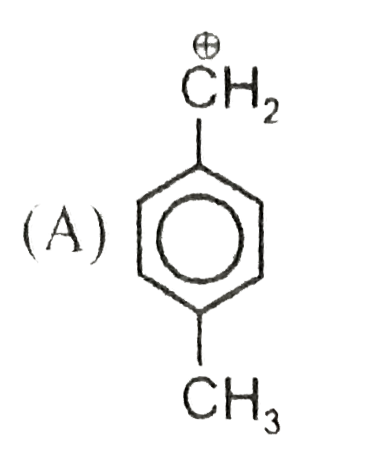 B
B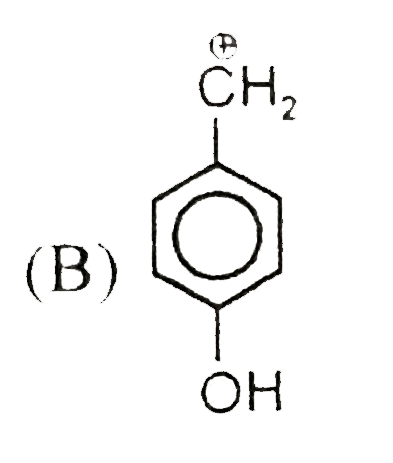 C
C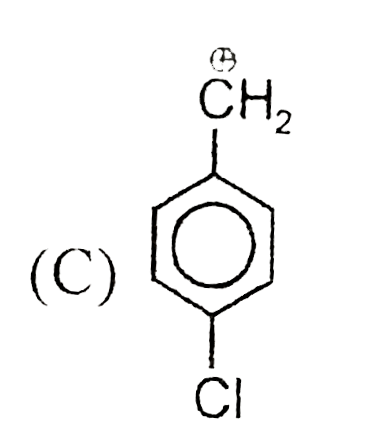 D
D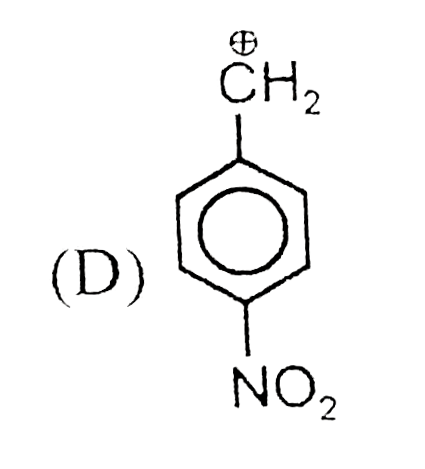
Which carbocation in the most stable ?
A B
B C
C D
D
Which carbocation is most stable
A B
B C
C D
D
Carbocation which is most stable
View SolutionWhich of the following carbocation is most stable ?
View SolutionWhich of the following carbocation is most stable ?
View SolutionWhich of the following carbocation will be the most stable?
View SolutionWhich of the following carbocation is most stable ?
View Solution
